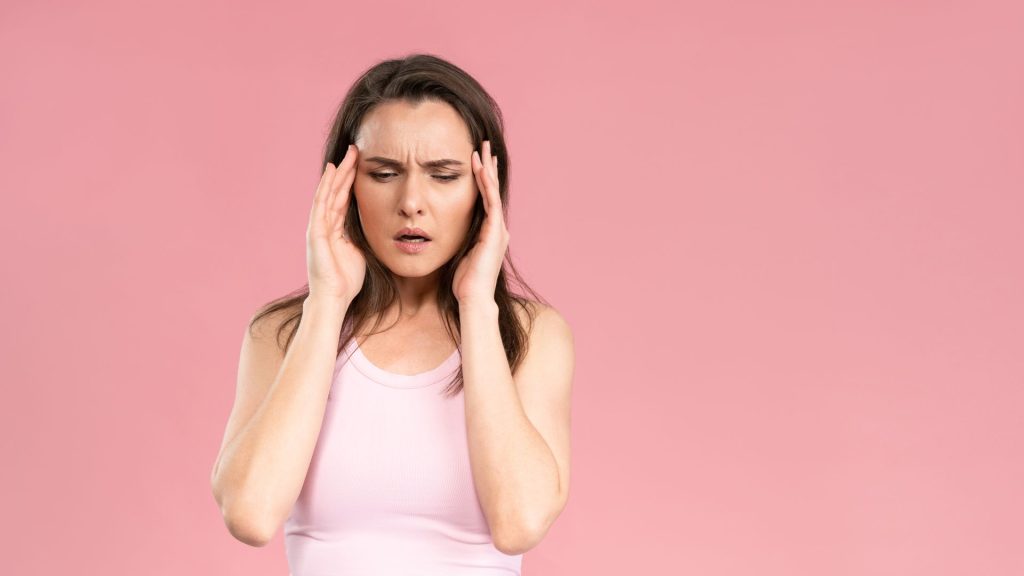Migraines are a form of headache that affect many parts of the body simultaneously, often manifesting with intense pain, light or sound sensitivity and nausea. Migraine episodes typically appear in “clusters”, meaning multiple migraines over an extended period.
Migraine treatments that may help reduce or prevent migraine attacks include avoiding triggers, getting adequate rest and taking medication.
Avoiding Triggers
As much as identifying and avoiding triggers can help lower migraine attacks, it’s important to keep in mind that very rarely does any one thing invariably lead to one. Avoidance often reduces quality of life because patients must forgo activities they enjoy and may lead to feelings of deprivation and self-blame. Patients should focus on making general lifestyle improvements that raise their migraine threshold instead.
Incorporating healthy habits like getting enough restful sleep, following a balanced diet, and engaging in physical exercise at least three times each week into their lifestyle will ensure optimal wellness. Furthermore, staying hydrated by drinking lots of water while limiting caffeine or alcohol use should also help.
Migraines can be caused by various triggers, including bright lights and glare, loud sounds and strong smells; hormone changes (such as those experienced during menstruation or pregnancy); emotional stress may also trigger migraines; relaxation techniques or participation in yoga/meditation classes can often help those experiencing migraines; however taking over-the-counter pain relievers too frequently could result in rebound headaches or dependency issues.
Getting Enough Sleep
Migraines often make it hard for many people to fall asleep easily or sleep through the night, whether due to discomfort, medication side effects, lack of mattress support or pillows, irregular sleeping and wake times, or any combination thereof. A regular schedule can help ensure uninterrupted restful slumber.
Avoid bright lights, sounds and screens before bed (use an app like CeCe to log headaches) If the pain keeps you up at night, applying cold or hot compresses may help ease it. Also remember to get at least seven to nine hours of restful slumber each night!
If your sleep is frequently interrupted by migraines, speak to your physician about undergoing a sleep study. Sleep studies can be invaluable tools in diagnosing possible sleep disorders that contribute to migraines such as insomnia, snoring or restless legs syndrome; treating such conditions could improve quality of life as well as potentially reduce frequency and severity.
Avoiding Certain Foods
Migraines may be caused by certain foods, including aged cheeses, chocolate, alcohol and caffeine. Other triggers include bright lights, being at high altitude and strong odors; so keeping a food diary may help identify what triggers migraine attacks.
If your migraine symptoms seem to worsen after eating certain foods, experiment by eliminating those items from your diet until your headaches cease. Doing this all at once might worsen them further! Just don’t eliminate too many at once since too much change could make things worse!
Cold therapy may help alleviate migraine symptoms by slowing nerve transmission of pain messaging and lessening headache intensity. You can use an ice pack, fill a bowl with water and freeze it or wrap cotton in plastic and press against your forehead/head with this method – these practices draw blood away from your head, reduce light sensitivity and alleviate migraine-like symptoms.
Taking Medications
Migraine medications come in various forms, and your doctor can help you determine which is most appropriate. An over-the-counter pain reliever like acetaminophen, ibuprofen or naproxen may provide initial relief; additionally, exercise is another excellent way to manage stress levels and help avoid migraine headaches.
Triptans are an invaluable addition to the treatment arsenal for migraines. These drugs work by blocking pain pathways in your brain by binding with specific receptors on nerve cells. Their efficacy increases when taken early on during an attack and include sumatriptan (Imitrex, Onzetra and Tosymra) and rizatriptan (Amerge, Maxalt). Treximet is also available; this combination pill combines triptans and nonsteroidal anti-inflammatory drug naproxen.
Antiseizure medicines such as valproate (Depakote, Zyprexa) and topiramate (Topamax, Qudexy XR) may also help relieve migraine headaches by acting on seizure activity; side effects can include tremor, weight changes, nausea and dizziness. Other migraine treatments include monoclonal antibodies such as Aimovig, Fremanezumab-vfrm (Ajovy), Galcanezumab-gnlmr (Emgality); they should be given monthly or quarterly via injection.


